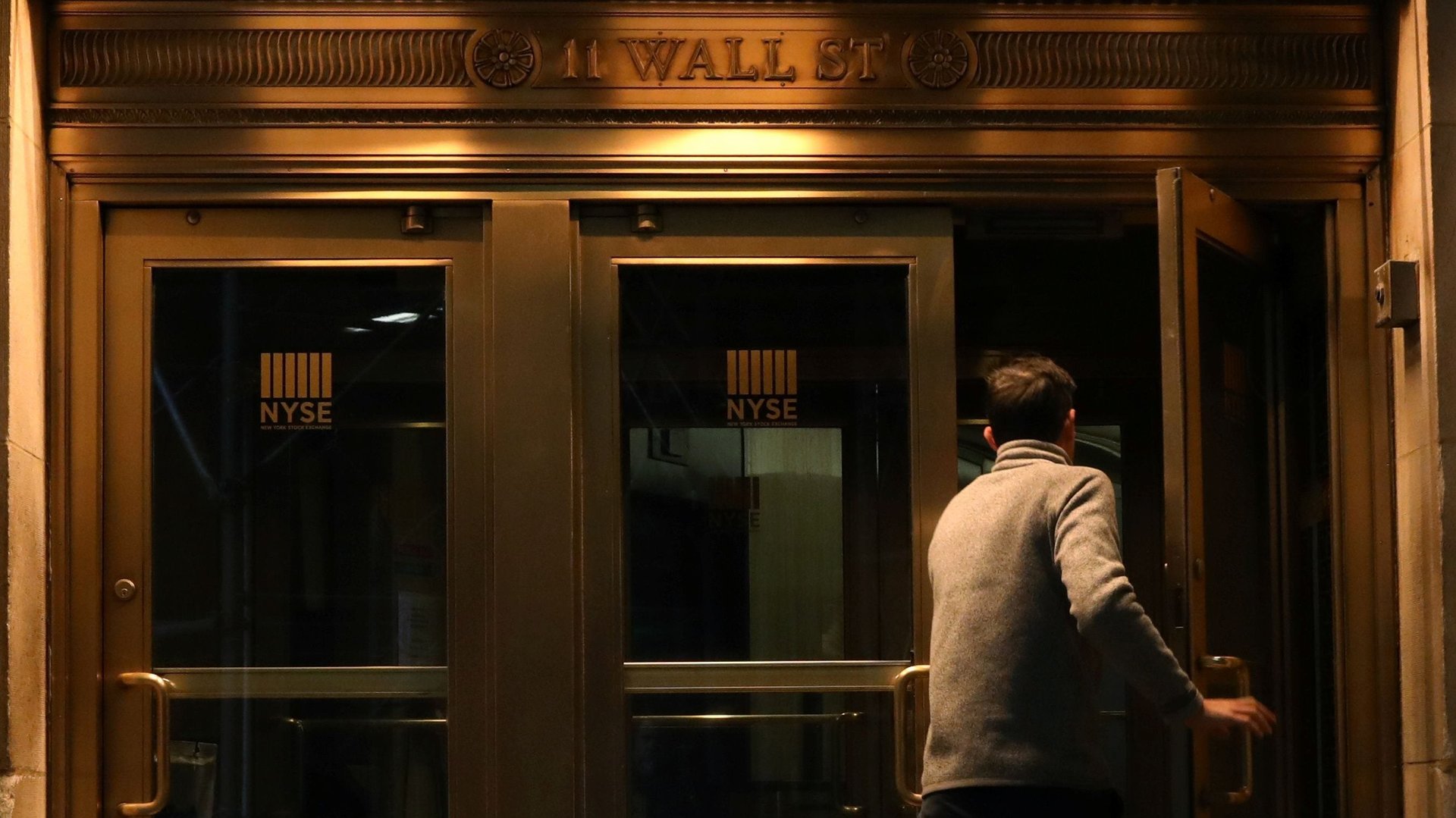There may never be a better time to engage in insider trading
A depleted US Securities and Exchange Commission (SEC) will struggle to keep a lid on insider trading and other types of fraud during the continuing government shutdown, experts tell Quartz, creating prime opportunities that wouldn’t exist otherwise.


A depleted US Securities and Exchange Commission (SEC) will struggle to keep a lid on insider trading and other types of fraud during the continuing government shutdown, experts tell Quartz, creating prime opportunities that wouldn’t exist otherwise.
With Democratic lawmakers and the White House at a stalemate over the $5.7-billion cost of funding Donald Trump’s long-promised border wall, the shutdown now stands as the longest in American history. Without full funding, the SEC is operating at 5.8% of normal capacity, with the enforcement division at 8%, according to data-intelligence firm Enigma Technologies.
Here’s what that staffing looks like:
John Stark, former chief of the SEC’s Office of Internet Enforcement, which monitors, among other things, online trading and investment activity, called the numbers “shocking” and predicts an increase in insider trading while enforcement staff is on furlough.
“There will absolutely be people on Wall Street, and off of Wall Street, who believe they may be able to get away with something because the cop is simply not on the beat,” Stark said. “I was there during a shutdown [in November and December of 1995] but the SEC was able to find funding to pay people’s salaries, so people stayed at work. This is a dramatic difference from that.”
An SEC spokesperson referred Quartz to the operational plan posted on the SEC website. It says staff is available “to respond to emergency situations involving market integrity and investor protection, including law enforcement.” Private entities such as the New York Stock Exchange, NASDAQ, and others will also be looking for suspicious activity during this period because they “monitor trading and are unaffected by [the] shutdown,” according to a government official with close knowledge of SEC operations.
A compounding backlog
The SEC was already stretched thin before the shutdown, as open positions have gone unfilled for the past couple of years, according to Stark.
It will take months for the enforcement division to dig out from underneath the backlog being created during the shutdown, he said, adding, “Undoubtedly, things will fall through the cracks to keep the enforcement program moving forward.”
Right now, SEC enforcement staff are not even permitted to read their emails, he explained, so “even if they wanted to work from home and get work done, it’s unlawful for them to do so.”
The shutdown comes at a time when high market volatility is making fraud particularly appealing for wrongdoers, said James Cox, a securities law professor at Duke University and widely followed SEC-watcher. “The more market swings you have and deals being called off, one would think there’s a lot of temptation for insider trading.”
Although the SEC contingency plan says the agency continues to take tips and referrals from law enforcement during the shutdown, the skimpy employee roster almost certainly means any investigations are “at a standstill, or maybe just plodding along, barely,” said Stark.
Most of the “essential” SEC employees who remain on the job are members of the upper-level staff and likely haven’t touched an actual case in a long time, said Tim Dunn, a former SEC accountant/examiner who runs a consulting firm that helps clients involved in SEC actions.
“How far away are they from hands-on working these important cases, and are they working them?” he asked. “Somebody who is in senior management is probably six, eight, 10 years removed from actually having done that work.”
The lure of perverse incentives?
Some SEC observers don’t think the government shutdown will encourage fraud. Former SEC enforcement attorney Matthew Hardin said there are “very few people in the industry that misbehave in general, and a government shutdown is not going to change their thinking.”
And the SEC doesn’t have to investigate crime in real time. It could always go back and pick up cases. The backlog means staff will have less time to tackle them. “The SEC may have to pick and choose [which cases to prosecute],” said Cox. “That sends out a message to people on Wall Street—‘Hey, maybe there’s less chance of me being caught right now,’ and that has all kinds of perverse incentives.”
“When people think the possibility of detection and prosecution goes down, the possibility that they will violate the law goes up,” he added.
Statute of limitations looms
Another potential risk is that the SEC will lose the opportunity to collect fines in cases involving insider trading. About 10% of all enforcement cases involve insider trading, said Cox. It can often take years to bring a complex case to trial, and there is a five-year statute of limitations on collecting fines.
“One would imagine there are cases teetering around that area, so the government may miss that window for getting a disgorgement remedy,” he added.
The SEC returned almost $800 million to swindled investors last year.
The longer the shutdown lasts, the more the SEC’s ability to police insider trading and securities fraud will be diminished. Some believe the agency was having trouble keeping up even when it was fully funded. Said Jeff Schwartz, a law professor who runs an SEC enforcement clinic at the University of Utah, “As it is, many commentators believe that insider trading is rife and under-enforced.”